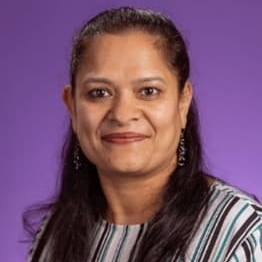Understanding Early Childhood Care and Education (ECCE) from Cultural Perspectives
A special issue of Education Sciences (ISSN 2227-7102). This special issue belongs to the section "Early Childhood Education".
Deadline for manuscript submissions: 31 May 2024 | Viewed by 705
Special Issue Editors
Interests: diversity and early childhood care and education; teacher professional development; issues related to quality child care and early childhood mental health
Special Issue Information
Dear Colleagues,
We know that children are reared in unique socio-cultural, political, and historical contexts. Their development, care and schooling experiences, parenting and upbringing are significantly influenced by their culture. In some cultures, the understanding of care and education is distinguishable, while in others, these terms are merged and treated as one entity. We respect these differences and would like to highlight issues and perspectives regarding care and the educational context of young children (0-8 years), specifically from global and cultural perspectives.
In this Special Issue, we give scholars an opportunity to discuss, critique, and highlight the differing and culture-specific contexts of early childhood care and education, and state its influence on children. How do teachers and parents, guided by culture, influence children between the ages of 0 – 8 years? Scholars can choose to address teacher and parenting practices within certain or multiple cultural contexts, and cross-cultural or culture-specific studies are welcome. Studies employing qualitative, quantitative, or mixed-method strategies are also welcome. Non-empirical studies, such as theoretical pieces reflecting the theme of this Special Issue, are encouraged. In addition, scholars from around the world are encouraged to submit their manuscripts. Let us showcase early childhood education globally.
Prof. Dr. Archana Vasudeva Hegde
Dr. Jessica Resor
Guest Editors
Manuscript Submission Information
Manuscripts should be submitted online at www.mdpi.com by registering and logging in to this website. Once you are registered, click here to go to the submission form. Manuscripts can be submitted until the deadline. All submissions that pass pre-check are peer-reviewed. Accepted papers will be published continuously in the journal (as soon as accepted) and will be listed together on the special issue website. Research articles, review articles as well as short communications are invited. For planned papers, a title and short abstract (about 100 words) can be sent to the Editorial Office for announcement on this website.
Submitted manuscripts should not have been published previously, nor be under consideration for publication elsewhere (except conference proceedings papers). All manuscripts are thoroughly refereed through a double-blind peer-review process. A guide for authors and other relevant information for submission of manuscripts is available on the Instructions for Authors page. Education Sciences is an international peer-reviewed open access monthly journal published by MDPI.
Please visit the Instructions for Authors page before submitting a manuscript. The Article Processing Charge (APC) for publication in this open access journal is 1800 CHF (Swiss Francs). Submitted papers should be well formatted and use good English. Authors may use MDPI's English editing service prior to publication or during author revisions.
Keywords
- diversity in early childhood care and education
- teacher education
- parenting and early childhood years
- global perspective on early childhood care and education
- teacher beliefs and practices in early childhood care and education.
Planned Papers
The below list represents only planned manuscripts. Some of these manuscripts have not been received by the Editorial Office yet. Papers submitted to MDPI journals are subject to peer-review.
Title: Dis/ability and Disruption: The Productive Potential of Dis/ability in the Early Childhood Classroom
Abstract: As neoliberal-able discourses function to create an ever-increasingly narrow definition of the ideal individual, there is also a growing excess of individuals who are not able to temporarily benefit from the neoliberal-able market. Goodley (2014) explains that “it is in this excess that we can find possibility… biopolitical spaces and neoliberal subjectivities can be worked, that is, co-opted, resisted and subverted” (p. 33). I draw on the theorizations of dis/ability as disruption in order to examine the disruptive power of dis/ability within a participatory action research project that took place in an inclusive classroom of six to eight year-old children in France. Specifically, I will discuss: (1) the disabling experiences, and their relationship with ableism, which caused disruptions that ultimately drew individuals to seek out an inclusive classroom, and (2) the disruptive experience of dis/ability in the classroom, and the actions they demanded. Through the storylines of two children, Geoffrey and Roger, dis/ability functioned to disrupt normative practices in the New School classroom, opening up new possibilities for the community.






